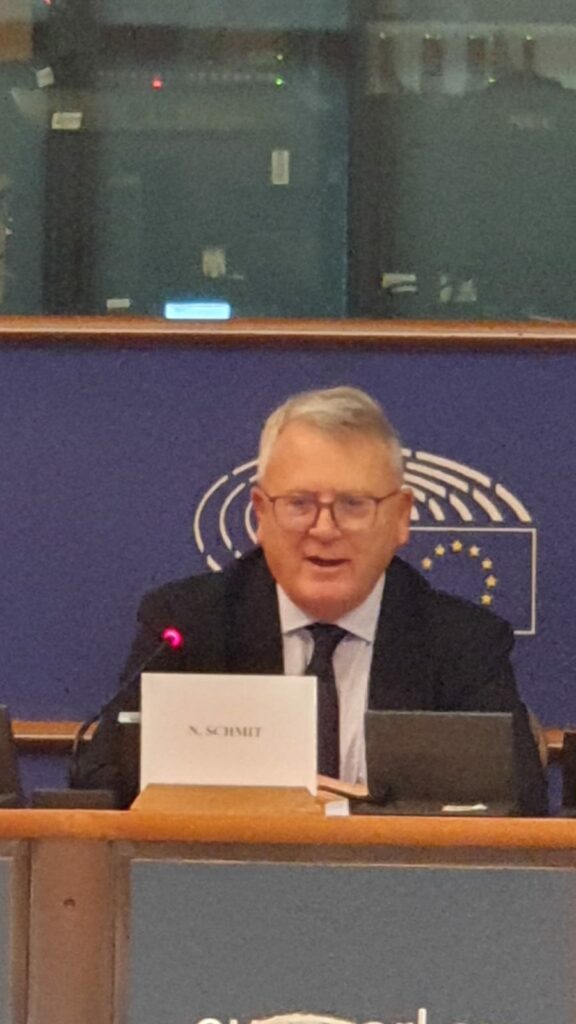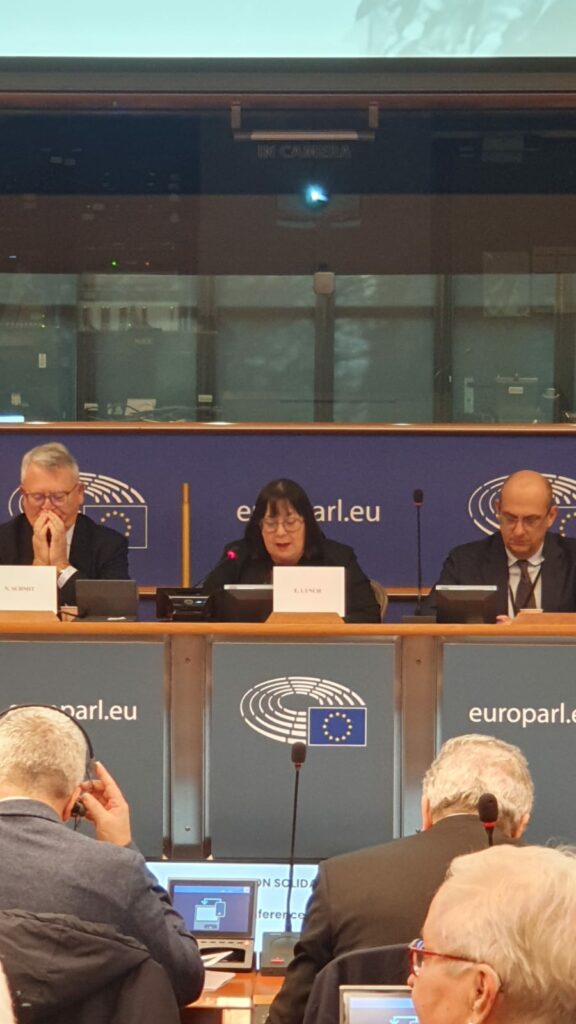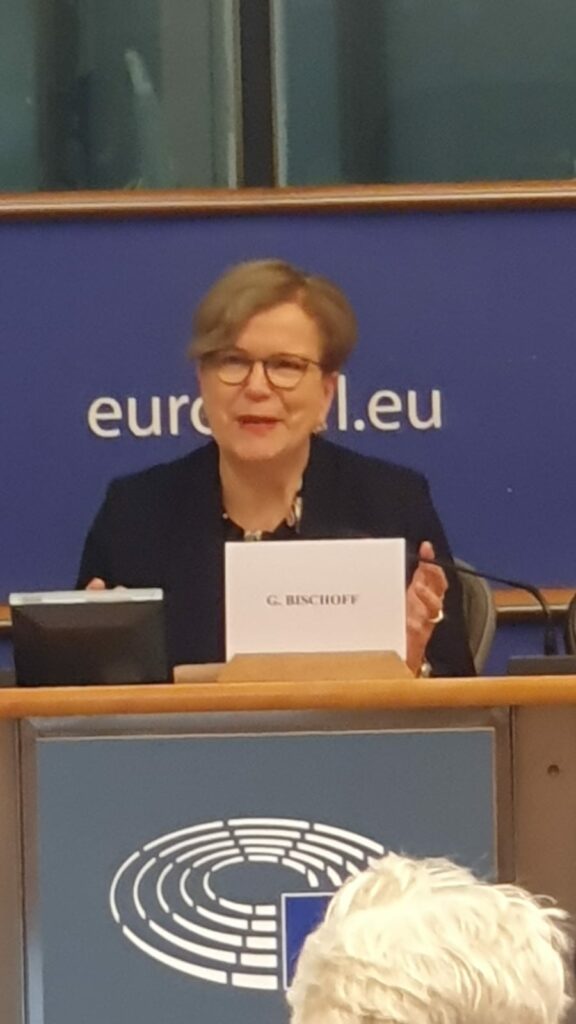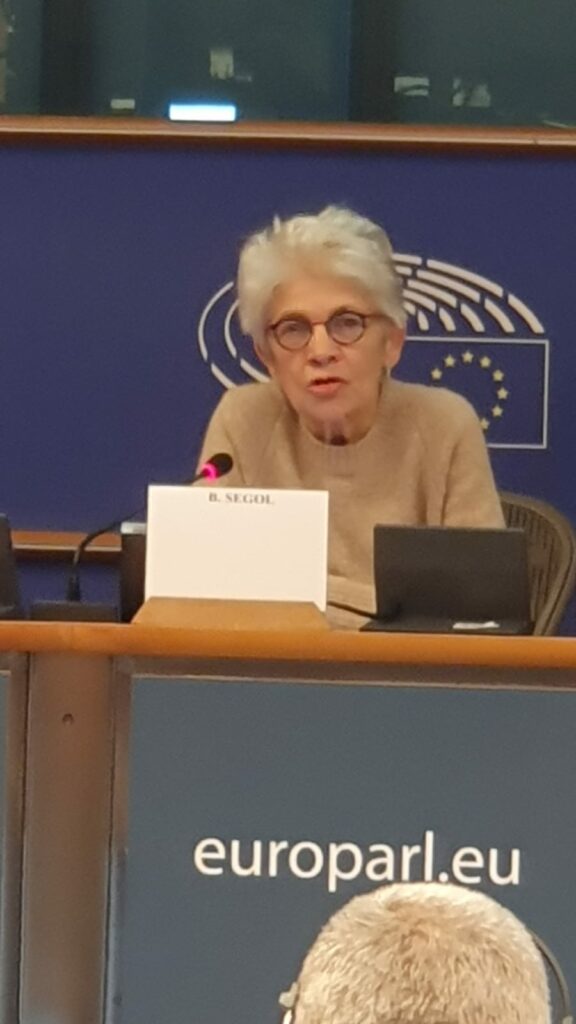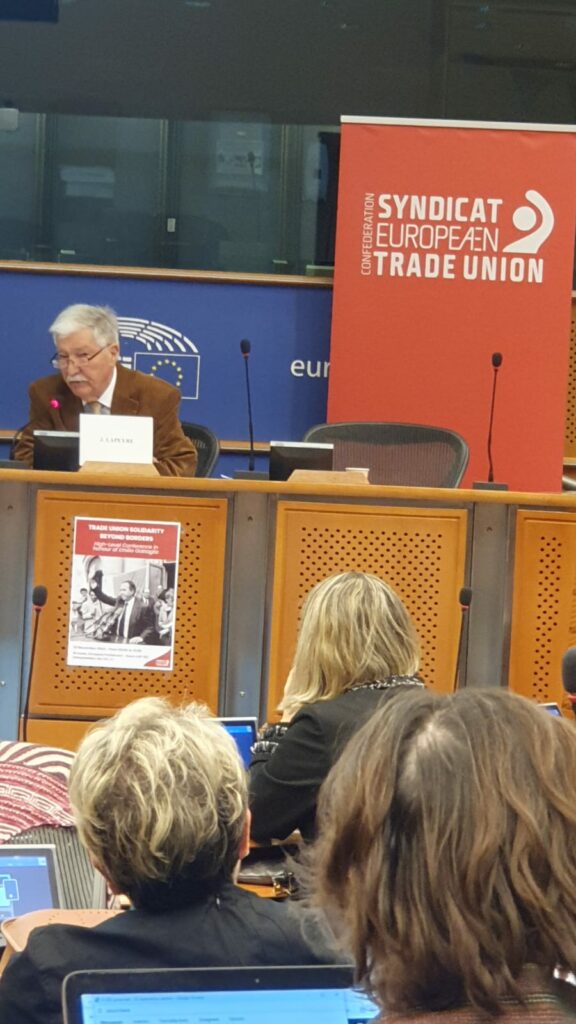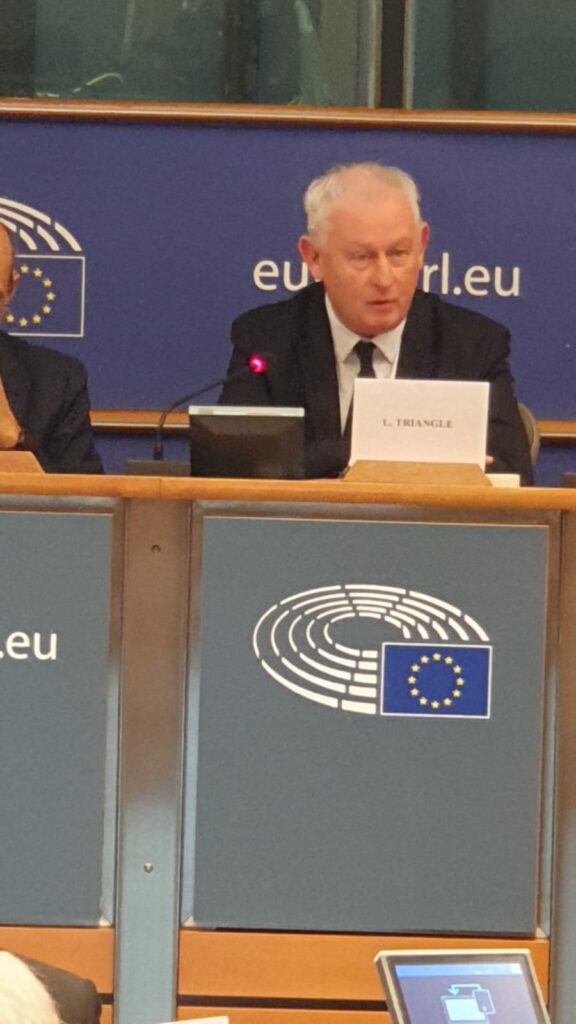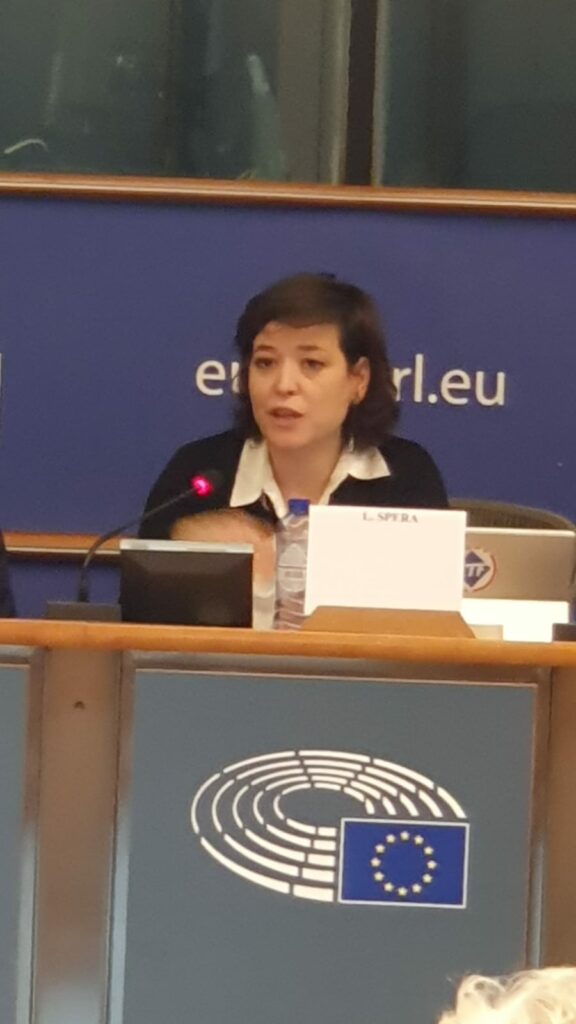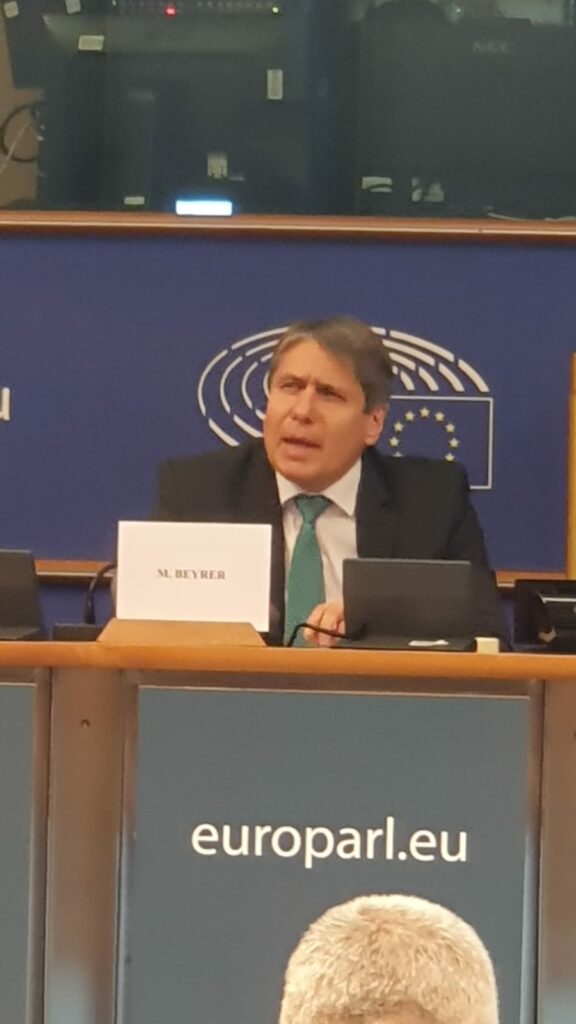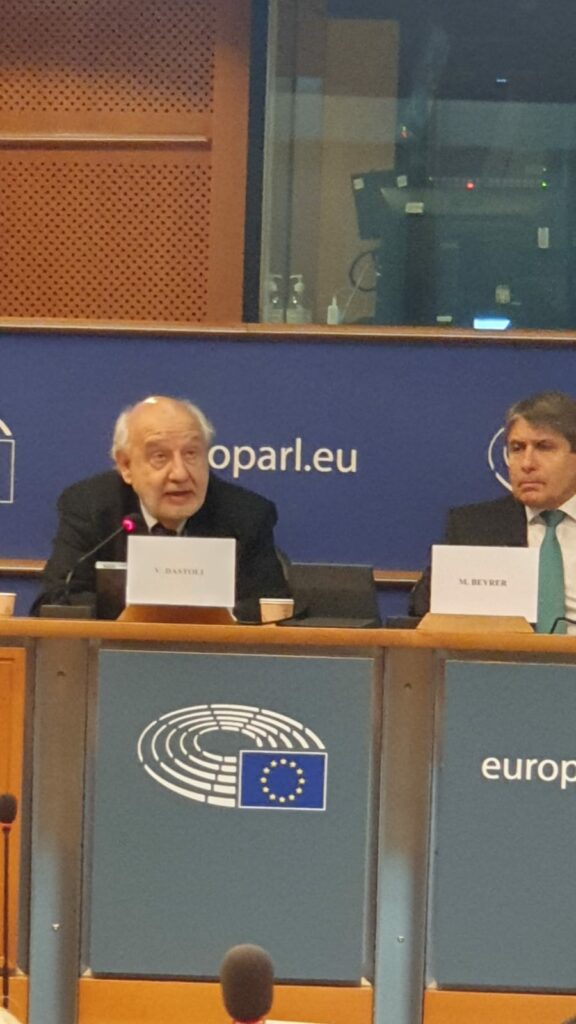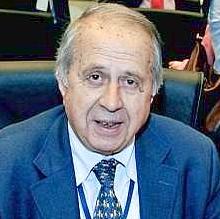It is with deep sadness that the European and international trade union world mourns the death of Emilio Gabaglio, an emblematic figure in the trade union movement and in European integration. Emilio was a leader of great humanity and strategic vision, a man who worked tirelessly for social justice and the dignity of labour throughout Europe.
Emilio Gabaglio has devoted much of his life to trade unionism and the construction of a more inclusive social Europe. His career was marked by his commitment as General Secretary of the European Trade Union Confederation (ETUC) from 1991 to 2003, a period when Europe was redefining its political and economic identity through the expansion of the European Union and the creation of the euro. Gabaglio has always placed at the centre of his work the need to protect workers' rights in this process of transformation.
Gabaglio was one of the signatories of the historic agreement between ETUC, UNICE (now BusinessEurope) and CEEP (now SGI Europe), which gave the social partners a key role in the social legislative process, with mandatory consultation of the social partners before any legislation in this area was adopted. This agreement forms the basis of European social dialogue, a fundamental element of the European social model: recognition of the active role of the social partners within the European Union represents a decisive turning point for both parties, and confirms Emilio Gabaglio in his role as architect of the new era of a People's Europe.
Emilio Gabaglio was closely associated with Jacques Delors, President of the European Commission, during the crucial years when the foundations of the modern European Union were being laid. He and Delors shared a social vision of Europe, a project that was not just economic, but which placed social justice and citizens' rights at its heart. Their collaboration led to policies that enabled greater inclusion of the social partners in European decision-making, leading to a more structured and institutionalised social dialogue. In this sense, Emilio Gabaglio can be seen as a spiritual successor to the method of Jean Monnet, the founder of European integration, whose progressive and pragmatic approach to European construction found an echo in Gabaglio's work. Like Monnet, Gabaglio believed in the need to build bridges between different social and political actors, convinced that progress could only be achieved through dialogue and cooperation, in order to create a shared vision of what Europe should become.
Those who knew him will remember Emilio Gabaglio not only as a great leader, but also as a person of extraordinary humanity. He was a humble person, never aloof, capable of making complex issues accessible and always acting with a deep sense of justice.
We gather around the family with affection and gratitude for Emilio, a man who devoted his life to building a fairer, more social and more united Europe.
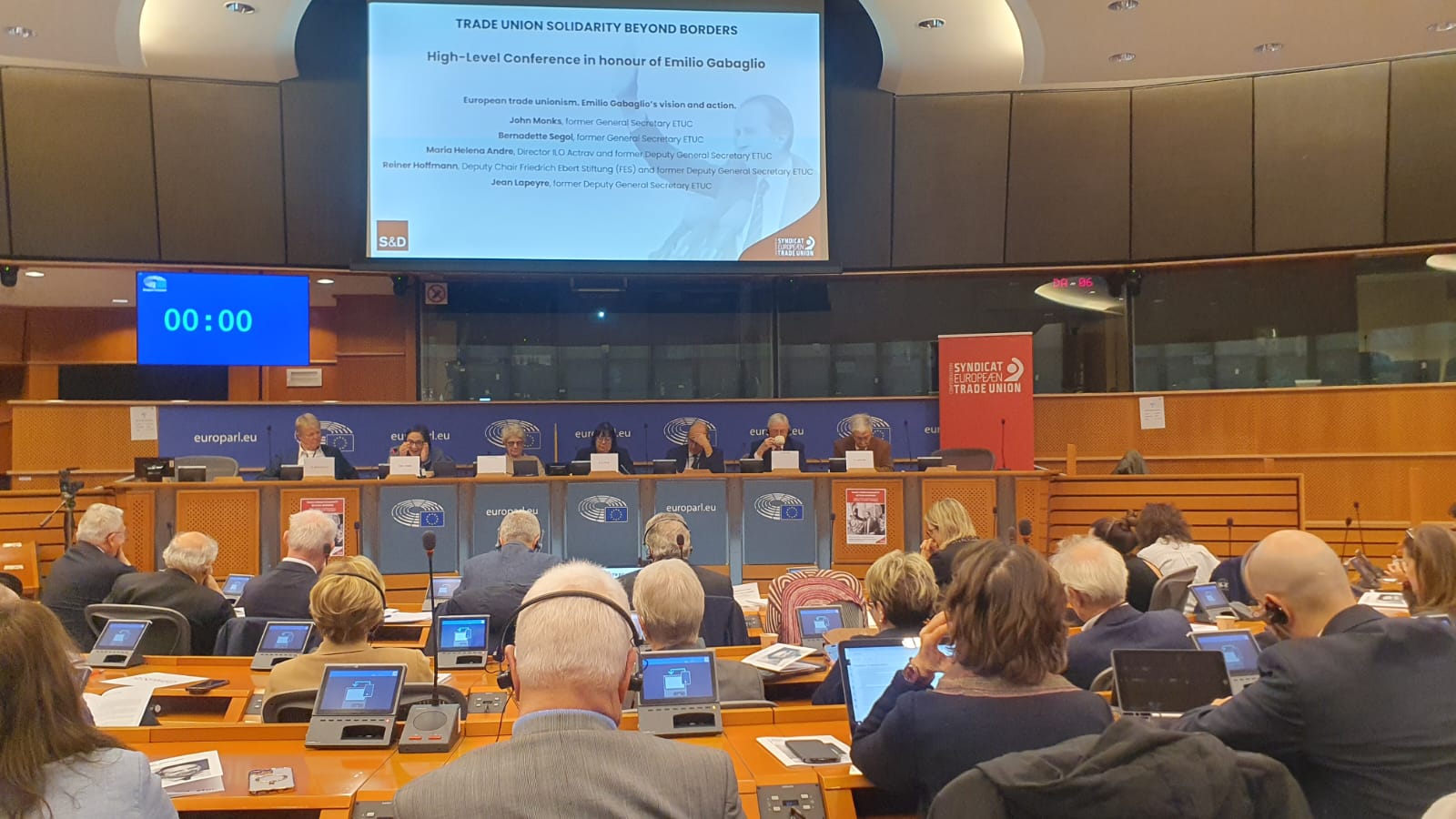
The AJM will be present at the tribute at the European Parliament (Brussels) on 22 November.
Lieven Taillie with Markus Beyrer
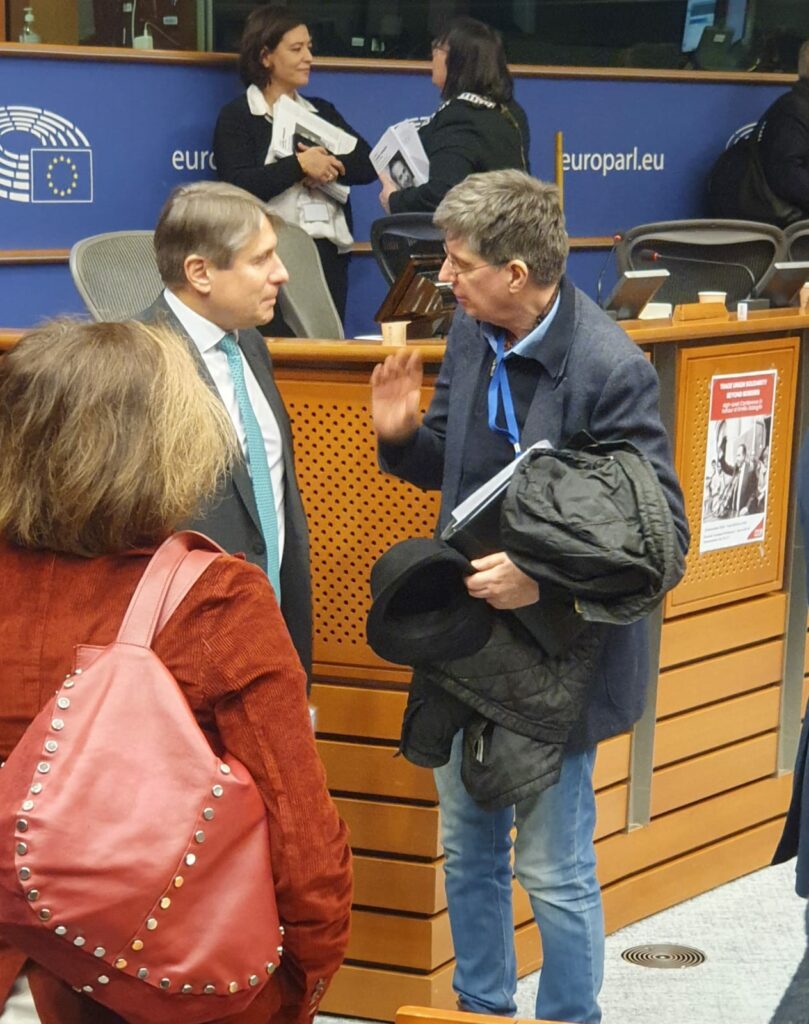
A packed house, with some 400 people, to honour the memory of this great trade unionist resolutely committed to a more social Europe and a better united Europe at the European Parliament on 22 November 2024, 6 weeks after his death. He was also one of the honorary members of our association, which was represented by Eric Pestel and Lieven Taillie.
Gathered by the S&D group and the European Trade Union Confederation (ETUC), numerous trade union leaders and MEPs paid tribute to the man who was one of the most ardent defenders of social Europe as ETUC General Secretary from 1991 to 2003, in the presence of his daughters and Commissioner Nicolas Schmit. Among the speakers were his successors John Monks and Bernadette Segol, his deputy Jean Lapeyre, current leaders such as Luc Triangle (ITUC), Miranda Ulens (ABVV-FGTB), Valeria Ronzitti (SGI Europe) and Olivier Valentin (CGSLB-ACLVB), and MEPs Gabriele Bischoff, Vice-President of the S&D Group, and Dennis Radtke of the EPP Group.
Everyone emphasised his inexhaustible energy in convincing people of the need to build a social Europe and to include a social chapter in the Treaties, particularly during the discussions on the Maastricht Treaty. Endowed with a gentle, even humble personality, he knew how to be both diplomatic, convinced that the straight and narrow was not always the shortest route, and firm, notably by organising major demonstrations in Brussels and Nice that left their mark on European trade union history.
In his fight, Emilio Gabaglio benefited from the support and even the complicity of Jacques Delors who, himself a former trade unionist, wanted to counterbalance the implementation of the internal market with support for workers who could suffer the consequences.
Placing Emilio Gabaglio's legacy in a current context, the speakers emphasised his fight against the extreme right and even dictatorships such as in Spain, Portugal, Latin America and Poland with Solidarnosc, with the conviction that there can be no democracy without a real Social Europe and no real Social Europe without democracy.
At a time when even the right to strike is being called into question in some European countries, everyone reiterated the importance of trade unions uniting in Europe, because the substance unites them if the form differentiates them. Even the EPP coordinator of the EMPL committee, Dennis Radtke, underlined the points of convergence, including the guarantee of decent wages.
Esther Lynch, the current General Secretary of ETUC, who led the debates throughout the morning, concluded this tribute by assuring us that her confederation would continue Emilio Garbaglio's pro-European and pro-social line, like that advocated by the Jean Monnet Association.
